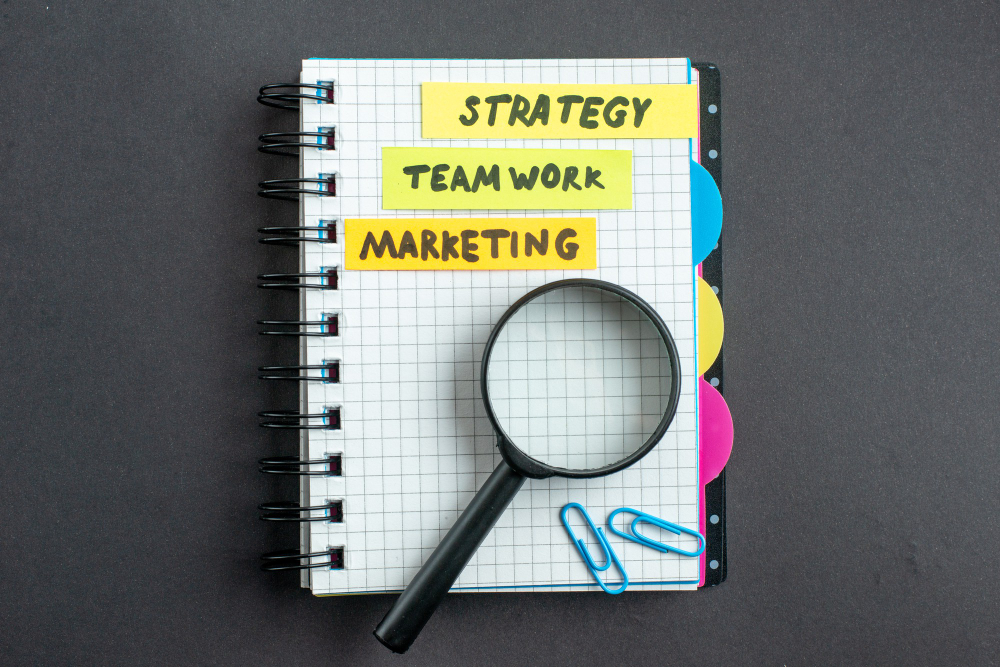we’ll directly compare various aspects of traditional marketing and digital marketing. Each approach has its unique strengths and limitations, so let’s explore them side by side:
Reach and Audience:
Traditional Marketing:
Mass Reach: Traditional channels have the advantage of reaching a broad audience. TV commercials, for instance, can reach millions of viewers simultaneously.
Local Targeting: Billboards and local radio ads allow businesses to target specific geographic areas.
Digital Marketing:
Global Reach: Digital platforms transcend borders. A blog post or a social media campaign can reach audiences worldwide.
Highly Targeted Segments: With tools like Facebook Ads, you can narrow down your audience based on demographics, interests, and behavior.

Cost and ROI:
Traditional Marketing:
High Upfront Costs: Producing TV ads, printing materials, or renting physical spaces can be expensive.
Challenging ROI Measurement: Determining the return on investment isn’t always straightforward.
Digital Marketing:
Flexible Budgets: Digital campaigns allow businesses to start small and scale up as needed.
Measurable Outcomes: Analytics tools provide real-time data, making ROI calculation more accurate.
Engagement and Interaction:
Traditional Marketing:
One-Way Communication: Traditional methods are often one-sided. Consumers receive messages without direct interaction.
Ads to Consumers: TV ads, billboards, and print materials don’t invite immediate feedback.
Digital Marketing:
Two-Way Interaction: Social media, comments, and chats allow for direct engagement.
Conversations with Customers: Brands can respond to inquiries, address concerns, and build relationships.
Speed and Flexibility:
Traditional Marketing:
Lengthy Planning and Execution: Creating TV commercials or designing print materials takes time.
Fixed Campaigns: Once a billboard is up, changes are limited.
Digital Marketing:
Quick Implementation: Digital campaigns can go live within hours.
Easy Adjustments: If a social media post isn’t performing well, you can tweak it immediately.

Case Studies and Real-World Examples
Let’s explore some success stories from both realms:
- Traditional Marketing Success Stories:
- Coca-Cola’s “Hilltop” Ad: In 1971, Coca-Cola aired the iconic “Hilltop” commercial featuring people from around the world singing “I’d Like to Teach the World to Sing.” The ad emphasized unity and harmony.
- Absolut Vodka’s Print Campaigns: Absolut’s clever print ads, featuring the iconic bottle shape in various creative contexts, became collector’s items.
- Digital Marketing Success Stories:
- ALS Ice Bucket Challenge: In 2014, the ALS Association’s viral social media campaign raised awareness and funds for amyotrophic lateral sclerosis (ALS). Millions participated by dumping ice water on themselves and challenging others to do the same.
- HubSpot’s SEO Strategies: HubSpot’s content-driven SEO approach helped them dominate search engine rankings for marketing-related keywords.
Integrating Traditional and Digital Marketing
The power lies in combining the strengths of both approaches. Here’s how:
- Consistent Messaging Across Channels: Whether it’s a TV ad or a social media post, ensure your brand voice remains consistent.
- Leverage Traditional Media to Boost Digital Efforts and Vice Versa: Use TV commercials to drive traffic to your website or promote your social media profiles.
- Cross-Promotions and Cohesive Branding: Collaborate with influencers across platforms to maximize reach.
Future Trends and Predictions
- The Evolving Marketing Landscape:
- Impact of Emerging Technologies: Artificial intelligence (AI), augmented reality (AR), and virtual reality (VR) will reshape marketing strategies.
- Shifting Consumer Behaviors: Stay attuned to changing preferences and adapt accordingly.
- Preparing for the Future:
- Stay Agile and Adaptable: The marketing landscape will continue to evolve. Be ready to pivot.
- Embrace Continuous Learning and Innovation: Keep up with industry trends and experiment with new approaches.
Conclusion
Balancing traditional and digital marketing is essential. Evaluate your strategies, blend the best of both worlds, and create a cohesive brand presence. The future belongs to those who adapt and learn.
FAQ’s
Certainly! Here are some frequently asked questions (FAQs) about traditional marketing vs. digital marketing:
What is Traditional Marketing?
Traditional marketing refers to any type of marketing that isn’t online. It includes methods such as print ads, broadcast (TV and radio) ads, direct mail, phone calls, and outdoor advertising like billboards. Traditional marketing helps reach targeted audiences through offline channels¹.
Why Choose Traditional Marketing?
- Traditional marketing has been around for a long time and is well-researched. It’s tried and true, and everyone encounters it in their everyday lives (e.g., getting mail or reading newspapers). It plays an important role in reaching local audiences and can have a lasting impact if the ads are physical and kept for a long time¹.
What is Digital Marketing?
- Digital marketing is any marketing conducted online. It includes paid social media ads, email marketing, PPC (pay-per-click) advertising, influencer campaigns, and more. Digital marketing has become popular due to cultural, technological, and societal shifts. It’s cost-effective and allows direct connections with global target audiences¹.
Why Choose Digital Marketing?
- Digital marketing is essential for businesses today. Consumers routinely conduct research and make purchases online. It offers a more direct way to connect with audiences, is often cost-effective, and provides real-time analytics¹.
Which Route Should My Company Take?
- It depends on your business goals. Traditional marketing can be effective for reaching local audiences and building brand awareness. Digital marketing, on the other hand, reaches wider audiences globally and allows for precise targeting and measurement of campaign effectiveness¹.
Is Digital Marketing More Cost-Effective?
- Yes, digital marketing can be more cost-effective than traditional methods. It often provides better ROI due to its targeted approach and ability to track results in real time⁷.
Do I Need Technical Expertise for Digital Marketing?
- While technical expertise can be helpful, many digital marketing tools and platforms are user-friendly. You can start with basic knowledge and learn as you go³.
Remember that the choice between traditional and digital marketing depends on your specific business needs and audience. Some companies find success by combining both approaches for a comprehensive marketing strategy









